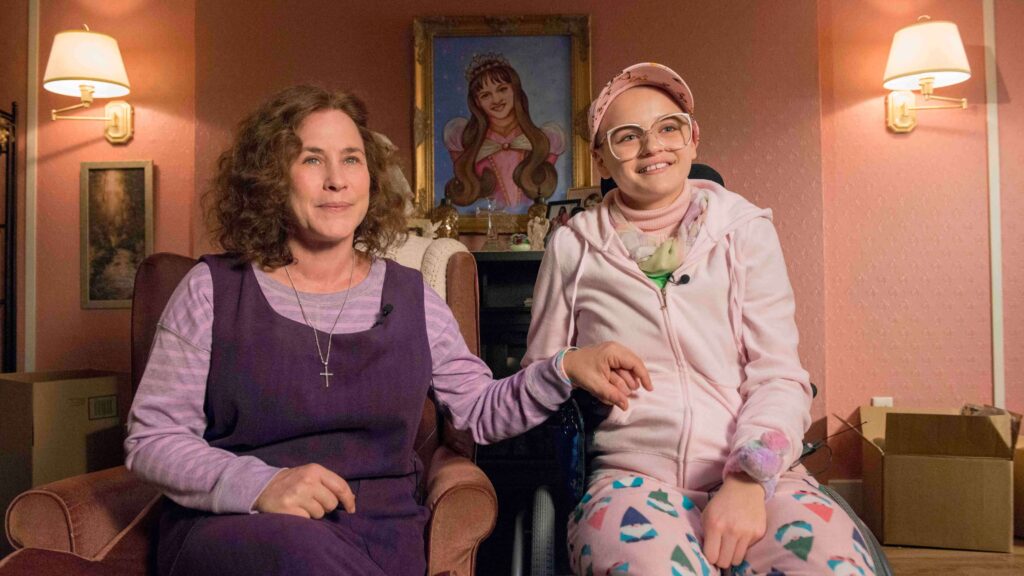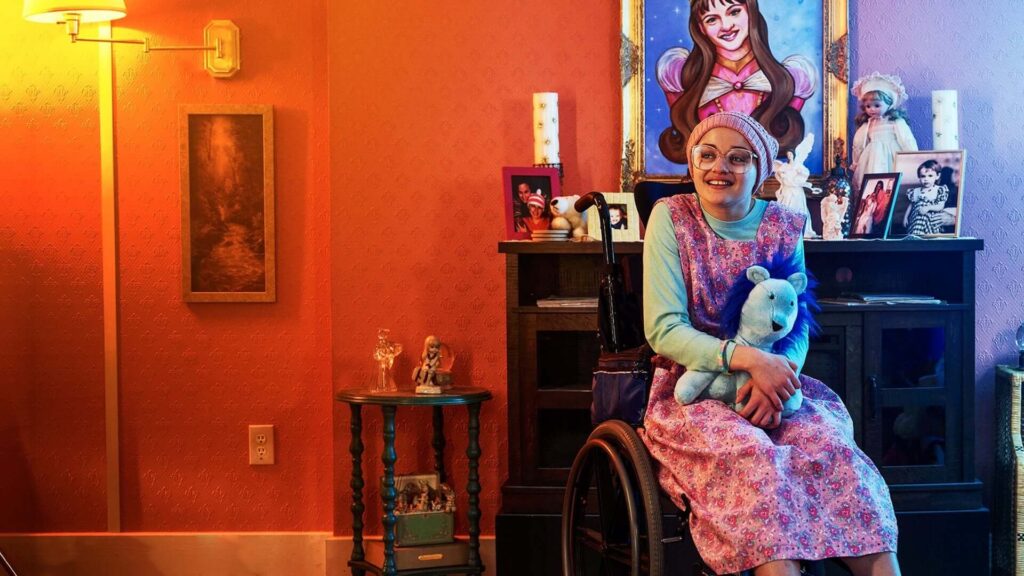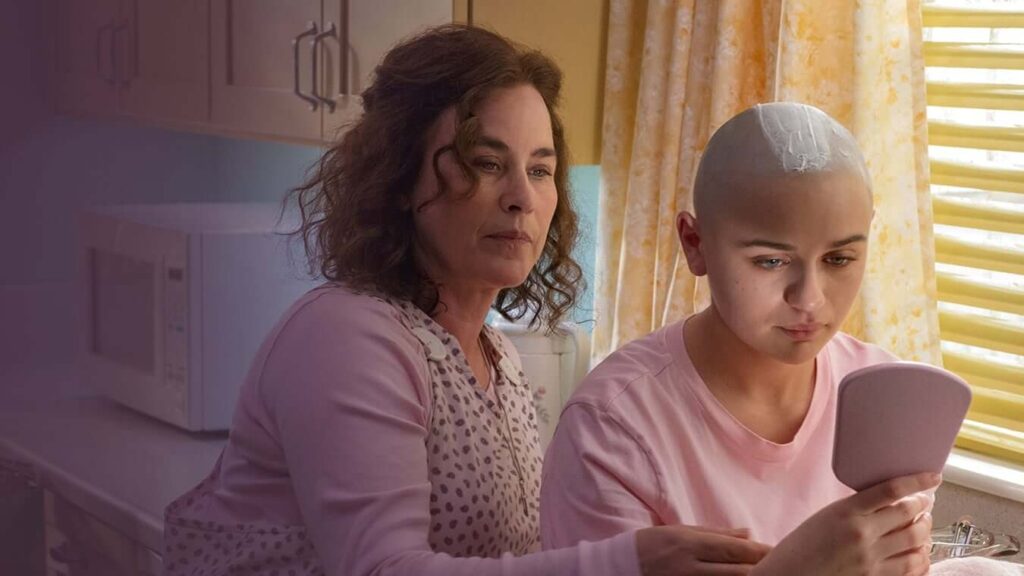The Act

TV-MA, 2019, Biography/Drama, 7h 5m
Table of Contents
What Is The Act About?
Dee Dee Blanchard and her daughter Gypsy Rose’s tumultuous relationship led to a tragic outcome.
Why You Should Watch The Act
The Act is a gripping, unsettling, and emotionally challenging miniseries that delves into the disturbing true story of Dee Dee Blanchard and her daughter Gypsy Rose. The show’s impressive cast, led by Patricia Arquette and Joey King, brings the complex characters to life in a way that is both sympathetic and unsettling.
One of the most striking aspects of The Act is its unflinching portrayal of the emotional and physical abuse that Dee Dee inflicts on Gypsy Rose. The show does not shy away from the brutal reality of the abuse, and it is presented in a way that is both horrifying and heartbreaking. As a viewer, it is impossible not to feel a sense of anger and disgust at Dee Dee’s actions, and empathy and sympathy for Gypsy Rose.

Patricia Arquette’s portrayal of Dee Dee Blanchard is one of the standout performances of the series. Arquette masterfully balances the character’s manipulative and abusive behavior with moments of genuine tenderness and vulnerability. Joey King’s portrayal of Gypsy Rose is equally impressive, capturing the character’s innocence and later, her growing sense of agency and rebellion.
While The Act is a challenging and emotional viewing experience, it is also a testament to the resilience of the human spirit. Gypsy Rose’s journey towards self-discovery and empowerment is both inspiring and heartbreaking, as she struggles to come to terms with the reality of her life and her relationship with her mother.
The Act is a powerful and thought-provoking miniseries that tackles difficult subject matter with sensitivity and nuance. The show’s impressive performances, cinematography, and soundtrack all work together to create an immersive and unforgettable viewing experience. While it is not an easy watch, The Act is an important and worthwhile addition to the true crime genre.
The Theme of The Act
One of the paramount themes explored is Munchausen Syndrome by Proxy (MSBP), where Dee Dee Blanchard fabricates or induces illnesses in her daughter Gypsy to solicit sympathy, attention, and various forms of assistance from their community. This mental health disorder is depicted with an eerie accuracy in the series, showcasing a caregiver’s twisted desire to keep her daughter perpetually ill and under her control. The representation of MSBP opens a discussion about a relatively lesser-known mental health disorder, shedding light on its devastating impacts on the victims.
The theme of manipulation and control is prominently featured, painting a grim picture of the toxic dynamics between Dee Dee and Gypsy. Dee Dee’s absolute control over every aspect of Gypsy’s life, from her health to her social interactions, showcases a horrifying extent of manipulation. The narrative deeply explores how Dee Dee’s manipulative tactics not only deceive the community but also severely impair Gypsy’s psychological and emotional development.
Further, the series ventures into Gypsy’s path of identity and self-discovery as she begins to realize the sinister reality she is entangled in. Through secret online relationships and plotting to escape her mother’s control, Gypsy attempts to carve out an identity separate from the fabricated narrative of illness enforced by her mother. Her desperation for freedom and a normal life highlights the profound human desire for self-actualization and independence.

The Act delves into the theme of the consequences of deception, demonstrating how the layers of lies spun by Dee Dee eventually lead to a catastrophic fallout. The destructive nature of deceit echoes throughout the narrative, posing a moral reflection on the cost of living a lie, not only for Dee Dee and Gypsy but also for individuals who find themselves ensnared in their web of deceit.
The series sheds light on the theme of victimization and abuse by portraying the numerous forms of abuse Gypsy endures. The storytelling challenges traditional narratives of victimization and evokes a complex sympathy for Gypsy as the public grapples with the harrowing unfolding events.
Lastly, the show presents legal and ethical dilemmas intertwined in the narrative. The moral ambiguities surrounding Gypsy’s actions, as well as the justice system’s handling of her case, underscore a broader societal reflection on how legal and moral judgments are formed amidst complex human relationships and mental health disorders.
The Cinematography of The Act
The cinematography of The Act plays a significant role in shaping the mood and atmosphere of the show. The use of tight framing is a key technique employed by the show’s cinematographers to create a sense of emotional intensity and claustrophobia. By emphasizing close-ups of the characters, the audience is drawn into their world, and the emotional weight of their experiences becomes palpable.
The Act often uses low angles to create a sense of unease and powerlessness. By shooting from below the characters, the cinematographers make them appear larger and more imposing, while also making the audience feel smaller and more vulnerable. These techniques work together to create an unsettling and unnerving visual style that supports the show’s themes of manipulation and abuse.

The Soundtrack of The Act
The soundtrack of The Act is an essential component of the show’s unsettling atmosphere. The score is composed by Jeff Russo, who has also worked on shows like “Fargo” and “Legion.” The music is often minimalistic, with sparse instrumentation that emphasizes a sense of isolation and emotional emptiness. The score incorporates a variety of instruments, including piano, strings, and synthesizers, to create a haunting and eerie atmosphere.
In addition to the score, the show uses a range of popular songs to further enhance the mood and themes of the story. For example, the first episode features the song “Con te partirò” by Andrea Bocelli, which reinforces the idea of a manipulative and controlling mother who uses her daughter’s supposed disabilities for her own gain. Other songs featured in the show include “Broken Girl” by Matthew West and “Dreams” by The Cranberries.
The use of music in The Act serves to heighten the emotional impact of the story and create a sense of unease and tension for the viewer. The combination of the minimalistic score and carefully selected popular songs works together to support the themes of manipulation and abuse that are central to the show’s narrative.
You can listen to a playlist inspired by a show below.
The Cast of The Act
Patricia Arquette as Dee Dee Blanchard – The mother of Gypsy Rose, Dee Dee is a seemingly devoted caregiver who claims that her daughter has a variety of serious illnesses and disabilities.
Joey King as Gypsy Rose Blanchard – The daughter of Dee Dee, Gypsy is presented as a sickly and disabled child who is dependent on her mother’s care.
Calum Worthy as Nick Godejohn – Gypsy’s boyfriend, who is portrayed as socially awkward and emotionally unstable.
Chloë Sevigny as Mel – A neighbor who becomes suspicious of Dee Dee and tries to help Gypsy.
AnnaSophia Robb as Lacey – Gypsy’s friend and confidante, who helps her plan her escape from Dee Dee.
The Filmmakers of The Act
- Michelle Dean – Executive Producer and Writer. She is the journalist who wrote the 2016 BuzzFeed article that served as the basis for the show.
- Nick Antosca – Executive Producer and Writer. He is a screenwriter and producer who has worked on shows like “Hannibal” and “Channel Zero.”
- Greg Shephard – Executive Producer. He is a producer who has worked on films like “St. Vincent” and “The House Bunny.”
- Britton Peele – Writer. He is a writer who has worked on shows like “Supernatural” and “Lore.”
- Laure de Clermont-Tonnerre – Director. She is a French director who has worked on films like “Mustang” and “The Mustang.”
- Adam Arkin – Director. He is an American actor and director who has worked on shows like “Chicago Hope” and “The Americans.”
- Christina Choe – Director. She is a Korean-American director who has worked on films like “Nancy” and “The Twilight Zone.”
- Steven Piet – Director. He is a director and producer who has worked on shows like “Euphoria” and “The Killing.”

Cinnamon Toast Crunch Cupcakes

Inspiration
Episode 1, Gypsy’s Cupcakes
More About The Act
Gypsy Rose Blanchard did in fact lose her teeth as a result of the medical abuse and neglect she suffered at the hands of her mother, Dee Dee Blanchard. Dee Dee had convinced doctors that Gypsy had a number of serious medical conditions, including leukemia and muscular dystrophy, and as a result, Gypsy underwent unnecessary medical procedures and took medications that were not required. Among the procedures that Gypsy underwent were multiple surgeries to have her salivary glands removed, which resulted in a decrease in saliva production and eventually caused her teeth to decay and fall out.
In The Act, Gypsy Rose Blanchard is portrayed as a young girl growing into her early adulthood across the span of the series. The storyline begins with Gypsy believed to be much younger due to her mother Dee Dee’s deception about her age as a part of her Munchausen Syndrome by Proxy (MSBP). As the story unfolds, it’s revealed that Gypsy is actually in her late teens and early twenties, slowly becoming more aware and rebellious against her mother’s control. The age deception is a crucial element to the narrative, showcasing the extent of Dee Dee’s manipulative behavior and the suffocating environment that Gypsy is desperate to escape from. Joey King’s compelling performance encapsulates the fragile and deceptive innocence of Gypsy Rose, making “The Act” a disturbing yet engrossing viewing experience. Through Gypsy’s eyes, the audience witnesses the grim reality and the harrowing journey towards her emancipation from the fabricated world crafted by her mother.

